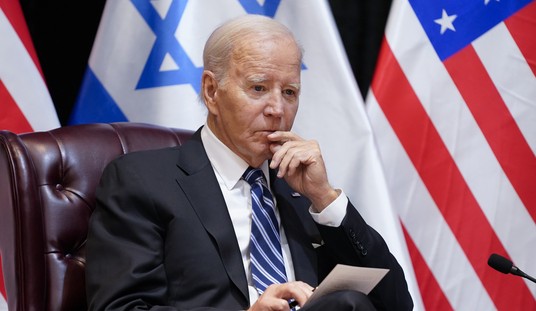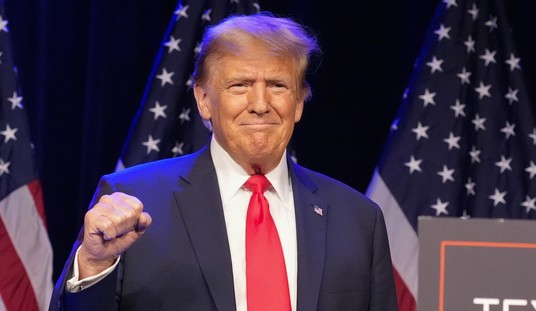Nebraska senator Ben Nelson’s recent announcement that he is retiring is further bad news for Democrats. After the disastrous 2010 midterms, the GOP’s pickup in NY-9, GOP gains in November’s local elections, and declining nationwide Democratic voter registration, the operative narrative should be impending electoral disaster for Democrats in November. Yet one critical dynamic absent from the political discussion is the possible up-ticket effect of these and other realities on the upcoming presidential election.
It’s common practice to note the “down-ticket” effect of presidential elections, i.e. whether the congressional and senatorial candidates will be able to ride the coat tails of the party’s presidential nominee to electoral victory. In 2004 and 2008, Bush 43 and Obama won the White House, and, as a result of effective, tech savvy presidential campaigns whose technology, e.g. micro-targeting, inured to the benefit of down-ticket candidates, each increased his party’s congressional representation at the same time. Now, however, a bottom-up, or up-ticket dynamic, may determine the election’s outcome. Democratic policies have produced painful local effects, and voters are poised to respond in kind, regardless of their enthusiasm for the Republican nominee. Here’s why.
First, the Tea Party’s animating impulse – outrage over big government overreach – remains, undiminished. Despite the media’s incessant focus on Occupy Wall Street, that unwashed band of unkempt misfits will not alter the political landscape in 2012 like the Tea Party did in 2010 because it did not connect with regular, working Americans or articulate a coherent political philosophy. And while Occupy fades into obscurity, the Tea Party is still motivated and looking to pick a fight with anything that smacks of big government. If anyone doubts this, witness the House-Senate spat over the payroll tax cut. The eighty-something House freshmen with Tea Party allegiance still command attention and wield influence. This will not change.
Recommended
Second, the economy remains in the doldrums and voters believe the country is on the wrong track. The post-stimulus unemployment rate – including those who have given up looking for work – is over 9%, President Obama now admits there is no such thing as a shovel ready project, housing is on the verge of another collapse, and credit is still tight. After giving Mr. Obama the benefit of the doubt on the economy for almost three years, in the wake of the failed stimulus and his robbing from Peter to pay Paul tax policy, 70 percent of Americans believe the country is on the wrong track. This majority rightly believes the president’s policies have failed; they are ready for a change they can believe in.
Third, Obamacare will become a greater political albatross as its provisions take effect. The Supreme Court has agreed to review Obamacare in March, but in the meantime, citizens are fuming over massive increases in personal health insurance premiums, a direct result of Obamacare’s mandates. Here in California, for example, health insurance premiums for families rose, in some cases, by 60 percent. To add insult to injury, employers are dropping coverage and religious institutions are being forced to offer medical services offensive to their core beliefs. No wonder the Kaiser Foundation recently found that only 34 percent of Americans have a favorable view of the Act, the president’s signature domestic policy “achievement.”
Finally, as the saying goes, all politics is local. With noted decreases in Democratic voter registration, increased Republican control of state legislatures (and the resulting political gerrymandering, e.g. Pennsylvania), and the increasing extent to which voters associate local Democrats with national failings, the political conditions are ripe for Republican gains nationwide.
These trends portend a strong showing for the GOP in November. Thus, even in spite of obvious Republican disenchantment with the field of prospective nominees, to the extent the country as a whole has moved right and/or repudiated the Obama agenda, such disenchantment might have little effect on the overall result if there is tremendous bottom-up pressure on the election. This is the up-ticket effect, or trickle-up political momentum. It may explain why despite his consistent polling around 20% with GOP primary voters, Mitt Romney just outpolled President Obama by 6 points in the latest Rasmussen poll of likely voters.
In other words, even though Mitt Romney, for example, will likely not provide the coat tails lower Republican candidates can ride to victory, those lower candidates might provide Mitt the momentum he needs to defeat a well-funded and organized incumbent. According to RealClearPolitics, President Obama commands a 48 percent disapproval number. Therefore, to the extent the public now connects him with long unemployment lines, shuttered local businesses, and more expensive healthcare, a conservative political tide similar to that which swept Congress in 2010 may deliver the White House to the GOP in November. There may be, therefore, an electoral landslide that provides the Republican victor the appearance of a mandate that he will not have earned.
























Join the conversation as a VIP Member